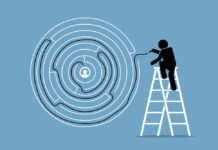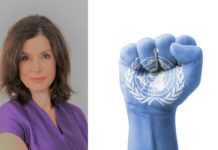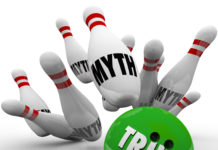FDA Approves Failed Alzheimer’s Drug
The FDA approved Biogen's failed drug aducanumab, overriding the 10-0 recommendation of its own advisory committee. Three panel members resigned in protest.
Psychotherapy Is Safer and Less Expensive Than Drug Treatment
In 1991, we conducted a study and found that psychotherapy saved money compared with drug treatment. We also found rampant overprescribing.
Barriers to Shared Decision Making in the Prescription of Antipsychotics
Researchers push for a renewed focus on true shared decision-making for patients diagnosed with psychosis.
Mental Health Survival Kit, Chapter 4: Withdrawing from Psychiatric Drugs (Part 5)
Withdraw from psychiatric drugs at your own speed—according to what you feel. Don’t reduce again before you feel stabilised on the previous dose.
Boy, Interrupted: A Story of Akathisia
I watched my son’s life change almost overnight. He developed akathisia from antidepressants, taken as prescribed for just a few weeks for garden-variety anxiety.
WHO and the Sea Change in Mental Health: Interview with Michelle Funk
MIA's Ana Florence interviews Michelle Funk about her leadership of the new WHO guidelines on rights-based mental health.
Understanding Psychological Disorders: My Personal and Professional Journey
A conflict in my personal life made it possible for me to imagine the power of emotional trauma to trigger a mental health disorder—and gave me new insights about what can help heal it.
Discourse, Drug Use, and Psychiatry: An Interview with Critical Psychologist Ilana Mountian
Richard Sears interviews Ilana Mountian on drug use, marginalization, the disease model of addiction, and problems with prohibition.
A Review of “Mud Flower: Surviving Schizophrenia and Suicide Through Art”
In "Mud Flower," Meghan Caughey seeks an ethics centered on the valuation of madness—and on art as one communicative pathway for values—for the muddy waters discarded by society.
Mental Health Survival Kit, Chapter 4: Withdrawing from Psychiatric Drugs (Part 4)
Psychiatrists have made hundreds of millions of people dependent on psychiatric drugs and yet have done virtually nothing to find out how to help the patients come off them again.
No, the FDA’s Black Box Warning Did not Increase Suicides
Researchers again debunk the claim that the FDA black box warnings on antidepressants led to more suicides.
Lessons from the Pandemic: Panic Attacks Are Not Random
The ease and confidence with which many clients assume they are prone to panic attacks reflects larger cultural trends truncating and framing human suffering in medicalized terms.
Treatment Providers Have the Power to Make or Break Recovery
We need treatment providers that listen to their patients and treat them like human beings. Their job is to support our recovery, not stymie it.
Modern Psychiatry’s Allure: It Tells People What They Want to Hear
Could psychiatry’s medical model owe its popularity to wishful thinking? Could it work so well for people (at some deeper level), that they’re willing to overlook its illogic/flaws?
Minimal Medication Alternatives for Psychosis Needed
Researchers question the long-term use of antipsychotics and suggest increased research and investment in psychosocial interventions.
My Letter to an Advocate for Involuntary Treatment
How long would I have to be off meds and stay safe and out of the hospital before my story would mean something to you and the advocates for chemical interventions?
Mental Health Survival Kit, Chapter 4: Withdrawing from Psychiatric Drugs (Part 3)
Cochrane has no interest in a review about safe withdrawal of depression pills but did its utmost to defend the psychiatric guild, its many false beliefs, and the drug industry.
Psychotherapy Can Prevent Relapse When Discontinuing Antidepressants
“Short and simple psychological programs can prevent people from relapsing when they stop their antidepressants.”
Mental Health Liberation and Spirituality: Ex-Psychiatric Inmates Share Their Thoughts
What I want to share with you, dear readers, is how spiritual experiences like mine have been reflected in so many people’s stories of being labeled with psychotic disorders.
Does Official Recognition of Peers Undermine Their Work?
Recognition of peers under Medicaid could undermine their interventions by morphing them into a hybrid of traditional medical and clinical recovery principles.
Responsibility Without Blame in Therapeutic Communities: Interview with Philosopher Hanna Pickard
Hanna Pickard on the elusive middle ground between personal responsibility and systemic factors in our understandings of addiction.
It’s All About Rights—or Should We Say “Unequal Privileges”
On May 26, MindFreedom will partner with “I Love You, Lead On” to host the fifth in an educational series to create cross-disability understanding of common themes and initiatives.
Mental Health Survival Kit, Chapter 4: Withdrawing from Psychiatric Drugs (Part 2)
Peter Gøtzsche: The MIND organization in Denmark and the psychiatric guild suppressed information regarding the discontinuation of psychiatric drugs.
Shining a Light on Numbers Needed to Treat (NNT)
With an NNT of 7, one out of every seven people given an SSRI would benefit from the treatment, while the other six would be needlessly exposed to the adverse effects.
The ERNI Declaration: Making Sense of Distress Without “Disease”
The ERNI (Emotions aRe Not Illnesses) declaration is based on the idea that distress does not equate to disease, dysfunction, dysregulation, or chemical imbalance.

































